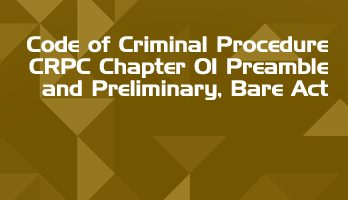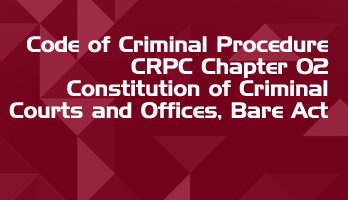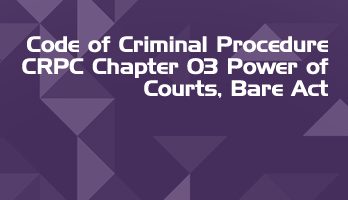A 'Bare act' is the actual legislation passed by the Parliament of India. Generally, an act sets out the high level legal and policy principles applicable to the subject matter of the law.
Most acts are accompanied by 'subsidiary legislation' such as rules, regulations, notifications and orders; which address the actual implementation detail of the act.
Free Full Course Available on LawMint's YouTube Channel
How to Land Your Dream LLB Internship in a Top Law Firm
- Part 1 - Introduction
- Part 2 - Internship Planning
- Part 3 - Internship Research
- Part 4 - Building Your Profile
- Part 5 - The Email
- Part 6 - The Resume
- Part 7 - The Cover Letter
- Part 8 - The Interview
- Part 9 - Self Development
Practical and comprehensive course, with real examples and step-by-step analysis of the complete internship application process. Check out LawMint's YouTube channel now!
Indian Divorce Act, 1869
Chapter XII – Procedure
Section 45 – Code of Civil Procedure to apply
Subject to the provisions herein contained, all proceedings under this Act between party and party shall be regulated by the Code of Civil Procedure*.
Section 46 – Forms of Petitions and statements
The forms set forth in the schedule to this Act, with such variation as the circumstances of each case require, may be used for the respective purposes mentioned in such schedule.
Section 47 – Petition to state absence of collusion
Every Petition under this Act for a decree of dissolution of marriage, or of nullity of marriage, or of judicial separation 2 * * * shall 3* * * state that there is not any collusion or connivance between the Petitioner and the other patty to the marriage. Statements to be verified. – The statements contained in every Petition under this Act shall be verified by the Petitioner or some other competent person in manner required by law for the verification of plaints, and may at the hearing be referred to as evidence.
Section 48 – Suits on behalf of lunatics
When the husband or wife is a lunatic or idiot, any suit under this Act (other than a suit for restitution of conjugal rights) may be brought on his or her behalf by the committee or other person entitled to his or her custody.
Section 49 – Suits by minors
Where the Petitioner is a minor, he or she shall sue by his or her next friend to be approved by the Court; and no Petition presented by a minor under this Act shall be filed until the next friend has undertaken in writing to be answerable for costs. Such undertaking 1* * * shall be filed in Court, and the next friend shall thereupon be liable in the same manner and to the same extent as if he were a plaintiff in an ordinary suit.
Section 50 – Service of Petition
Every Petition under this Act shall be served on the party to be affected thereby, either within or without India, in such manner is the High Court by general or special order from time to time directs: Provide that the Court may dispense with such service altogether in case it seems necessary or expedient so to do.
Section 51 – Mode of taking evidence
The witnesses in all proceedings before the Court, where their attendance can be had, shall be examined orally, and any party may offer himself or herself as a witness, and shall be examined, and may be cross – examined and re – examined, like any other witness: Provided that the parties shall be at liberty to verify their respective cases in whole or in part by affidavit, but so that the deponent in every such affidavit shall, on the application of the opposite party, or by direction of the Court, be select to be cross – examined by or on behalf of the opposite party orally, and after such cross – examination may be re – examined orally as aforesaid by or on behalf of the party by whom such affidavit was filed.
Section 52 – Competence of husband and wife to give evidence as to cruelly or desertion
On any Petition presented by a wife, praying that her marriage may be dissolved by reason of her husband having been guilty of adultery coupled with cruelty, or of adultery coupled with desertion without reasonable excuse, the husband and wife respectively shall be competent and compellable to give evidence of or relating to such cruelty or desertion.
Section 53 – Power to close doors
The whole or any part of any proceeding under this Act may be heard, if the Court thinks fit, with closed doors.
Section 54 – Power to adjourn
The Court may from time to time adjourn the hearing of any Petition under this Act, and may require further evidence thereon if it sees fit so to do.
Section 55 – Enforcement of, and appeal from, orders and decrees
All decrees and orders made by the Court in any suit or proceeding under this Act shall be enforced and may be appealed from, in the like manner as the decrees and orders of the Court made in the exercise of its original civil jurisdiction are enforced and may be appealed from, under the laws, rules and orders for the time bring in force: Provided that there shall be no appeal from a decree of a District Judge for dissolution of marriage or of nullity of marriage; nor from the order of the High Court confirming or refusing to confirm such decree: No appeal as to costs. – Provided also that there shall be no appeal on the subject of costs only.
Section 56 – Appeal to the Supreme Court
Any person may appeal to the Supreme Court from any decree (other than a decree nisi) or order under this Act of a High Court made on’ appeal or otherwise, and from any decree (other than a decree nisi) or order made in the exercise of original jurisdiction by Judges of a High Court or of any Division Court from which an appeal shall not lie to the High Court, when the High Court declares that the case is a fit one for appeal to the Supreme Court.
Important Central Acts in Regional Languages
Legislative department website also features regional language versions of several important Central Acts.
Free Full Course Available on LawMint's YouTube Channel
How to Land Your Dream LLB Internship in a Top Law Firm
- Part 1 - Introduction
- Part 2 - Internship Planning
- Part 3 - Internship Research
- Part 4 - Building Your Profile
- Part 5 - The Email
- Part 6 - The Resume
- Part 7 - The Cover Letter
- Part 8 - The Interview
- Part 9 - Self Development
Practical and comprehensive course, with real examples and step-by-step analysis of the complete internship application process. Check out LawMint's YouTube channel now!












